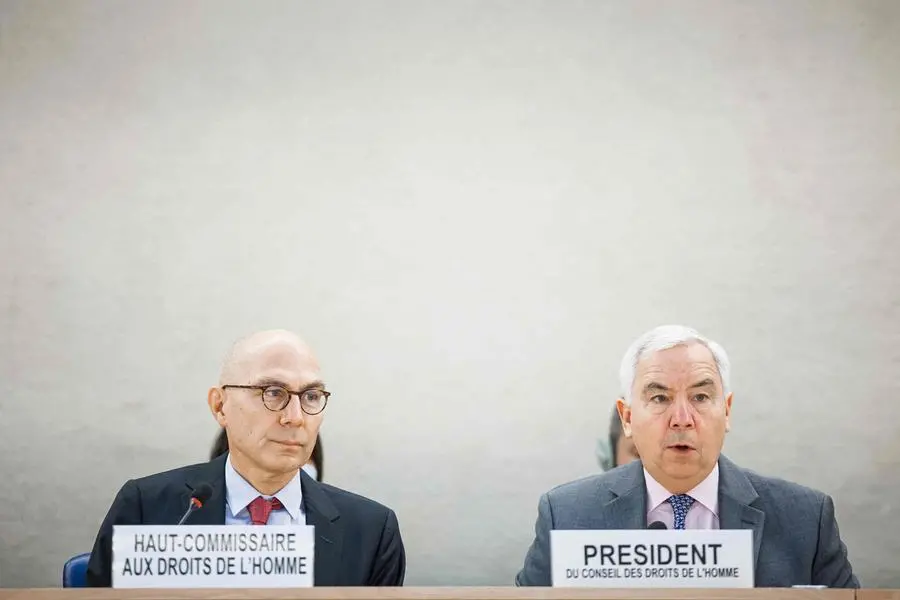PHOTO
Iran's foreign ministry has condemned a United Nations Human Rights Council decision to probe the Islamic republic's response to unrest following the death of Mahsa Amini.
Tehran had opposed holding the urgent council session on Thursday as requested by Germany and Iceland.
It "totally rejects" the resolution that was adopted to establish a high-level fact-finding mission, the ministry said in a statement late Thursday.
Iran has seen more than two months of demonstrations sparked by the death in custody of 22-year-old Kurdish-Iranian woman Mahsa Amini. She had been arrested for an alleged breach of the country's strict dress code for women.
Government officials have blamed the "riots" on "foreign enemies" in the West whom they accuse of inciting law-breaking.
The foreign ministry said Iran had already formed a national commission of inquiry involving legal experts and "independent representatives".
"The formation of any new mechanism to examine the incidents over the past two months in Iran is useless and represents a violation of the country's national sovereignty", it said in a statement.
Iran "does not recognise the mission", the ministry added.
A broader-than-expected majority of the 47-member council backed launching the probe, with 25 votes in favour, 16 abstaining and only six countries -- Armenia, China, Cuba, Eritrea, Pakistan and Venezuela -- opposed.
Tehran accused Germany and other countries which supported the resolution of making "false and provocative allegations about violating men, women and children's rights, which Iran denies".
"This resolution was made under pressure from certain political lobbies that depend on false information spread by anti-Iranian media," the foreign ministry charged.
It decried a "strategic error by Germany and certain Western countries" and said "this blindness will be detrimental to their interests".
During Thursday's session, UN rights chief Volker Turk insisted that "the unnecessary and disproportionate use of force must come to an end."
Turk said more than 300 people had been killed since Amini's death. He told reporters he had offered to visit Iran but had received no response from Tehran.





















